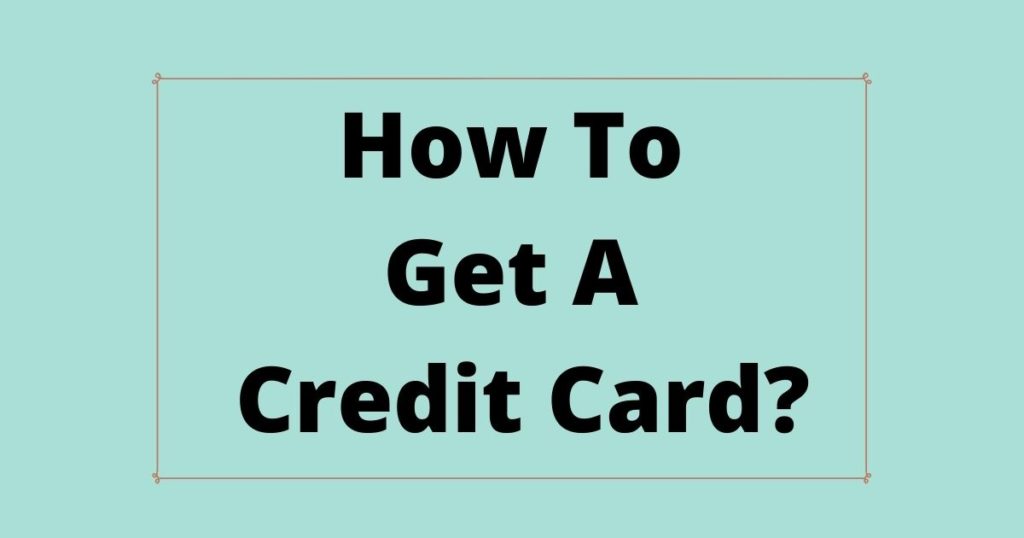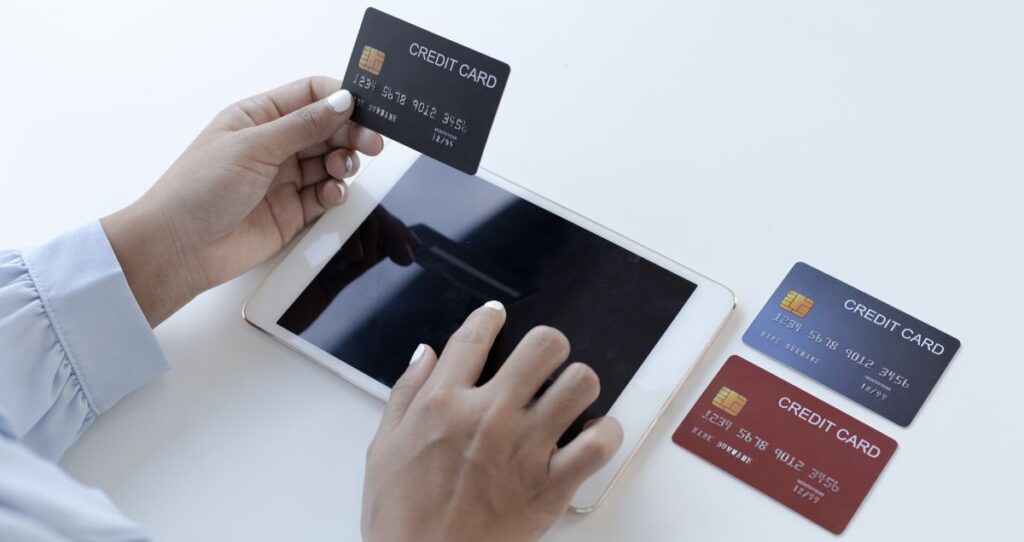How does credit card debt affect credit score? Credit cards are some of the best tools to build credit, and get discounts on some of your purchases through cash backs, miles, points, etc. In case you are having financial setbacks such as a loss of a job, your credit cards can cover some of your expenses while you are figuring things out. Carrying credit card debt, however, will negatively affect your credit score. Learn how credit card debt affects credit score and what you can do differently to use credit cards without wrecking your credit.
Credit utilization is one of the biggest factors in your credit score calculation. As you increase your credit card balance and accumulate credit card debts, your credit score goes lower. In order words, a higher credit utilization shows that you are relying on debt to finance your lifestyle. A high utilization rate also shows that you either don’t make enough income to pay your bills or you simply make poor financial decisions. Either way, you are a risky borrower and lenders don’t like risky borrowers. For this reason, credit card debt will lower your credit score.
Besides lowering your credit score, credit card debt will also put stress on your finances due to higher interest charges and fees in a form of APR. So, the more credit card debt you carry, the more interest charges you pay. This makes it harder to pay off your credit card debts.
How does credit card debt affect credit score?
Carrying credit card debt will negatively affect your credit score. This is because your credit utilization is one of the biggest factors on your credit score and it affects your FICO score by 30% and 20% of your Vantage score. Credit utilization is nothing other than the amount you have spent compared to the available credit limit.
By maxing out your credit cards, you end up with a higher credit utilization which in turn lowers your credit score. Not only that credit card debt affect your credit score, but you will also pay higher interest charges on the amount you owe. In addition, some lenders might deny you credit when you carry a lot of credit card debts or when you have a high credit utilization.
You can lower your credit utilization rate by:
- Requesting a credit limit increase by calling your credit card issuer or submitting a request online
- Applying for another credit card, or
- Paying off your credit card debt fast.
Since credit card debt affects your credit score, you should avoid carrying balances on your credit cards.
You might also like: How to negotiate your credit card debt?
Will my credit score go higher if I carry more debt?
Your credit score will not go higher when you carry more credit card debts. Matter of fact, having a lot of credit card debt will hurt your credit score. Your credit utilization is the second highest factor on your FICO score and it goes higher as you carry more balance on your credit cards. Maxing out of your credit cards shows that you are relying on debt to finance your expenses. In order words, you are leaving above your means which makes you a risky borrower.
Your utilization rate is the amount you have spent compared to the available credit limit. For example, if you have a credit card with a $1,000 credit limit and you spent $350, your credit utilization will be 35%.
By carrying more credit card debt or having a higher credit card balance, you increase your credit utilization. This, in turn, lowers your credit score. Most lenders suggest that you maintain a credit utilization of 30% or lower. However, carrying this high balance on your credit cards will cause you to pay interest on that balance. Which is not good for you as a borrower.
To avoid interest or a late fee on your credit account, pay off your balances in full every month. Carrying a $0 balance will also prevent you from getting into credit card debt.
Does carrying a credit card balance bad for your credit score?
Your credit score goes lower as the balance on your credit cards goes higher. A higher balance means you are maxing out your credit cards which increases the risk of lending you money. The more you spend on your credit cards, the harder it becomes to pay it off.
When you can’t pay all your balances in full at the end of each month, you get charged interest on the balance you carried to the next payment cycle. The same balance will also be reported to major credit reporting agencies(Experian, Equifax, and TransUnion) and will appear on your credit reports. Hence, lowering your credit score.
It is not about how much you spend on each credit card, it is about how much you carry to the next payment cycle. A good trick you can use with your credit cards is to pay every penny by the due date, then DON’T use your credit cards until after the statements have been released.
Again, it is important to remember that the balance reported on your statement is what gets reported to credit bureaus. That same balance is what affects your credit score.
By keeping your credit card balances to $0 by the statement release date, you end up with a $0 statement balance. Hence, having no effect on your credit score. In case you cannot have a $0 balance on your credit cards, keep it as low as possible.
How much credit card debt is too much?
Any debt that gives you financial stress or costs you more than necessary, is too much. Credit card debts in particular are fundamentally bad. The APR(usually compounded) you pay on your debts makes it harder to cope with your credit card debts.
You should avoid credit card debt as much as you can. No matter how small your balance is, you will still pay interest on that balance. But, there is a huge difference between carrying a small balance and a large credit card balance. The difference will come in the interest charges you pay and your ability to pay it off.
If you have more than 30% of credit utilization on your credit cards, you are already in the red when it comes to credit cards. Keeping your credit card debts or utilization ratio under 10% is always good for you. The smartest and safest way to never get into credit card debt is to pay the balance on each credit card in full every month. Remember, the only person who benefits when you carry a balance on your credit card is your lender. Not you.
What is a good credit utilization ratio?
When it comes to credit utilization, things get a little confusing. Your credit utilization is the amount you have spent on your credit card compared to the available credit limit.
For example, if the lender approved you for $2,000 on your rewards credit card, you can spend up to $2,000. That $2,000 is your credit limit. If you have spent $1,000, for example, your account balance will be $1,000 or 50% of your credit limit. Your credit utilization in this case will be 50%.
If you can manage to pay off this balance in full before the due date, it will not affect your credit score. But, if by the statement date you still owe $1,000, this balance is what will be reported to major credit bureaus and affect your credit score.
Two important dates to keep in mind
When it comes to your credit accounts and credit scores, there are two important dates to keep in mind.
- Balance due date. This is the date when you must pay at least the minimum payment on each credit card to avoid late fees, and charges. The balance due date is between you and your card issuer. If you have a balance on your card make sure that you pay it off by the due date. Each credit card comes with its own due date but you can request to have the same due date on all of your credit cards.
- Statement date. Your statement date is the closing day of your credit card billing cycle. Any remaining balance on your credit card will become your statement balance and gets reported to credit bureaus.
So, what is a good utilization ratio?
Since you pay interest on the balance you carry on each credit card, it is important that you carry little to no balance. Most lenders suggest that you keep your utilization ratio to no more than 30%. However, maintaining this high utilization ratio is never a good idea. A 0% utilization ratio is always the best ratio to aim for. With no balance on your credit cards, you will never have to worry about interest, fees, etc.
But, if you cannot pay your bills in full, at least have no more than 10% credit utilization. This is good especially when you are trying to repair your credit and boost your credit score. A lower balance is also easy to pay off and prevents you from getting into credit card debts.
A trick you can use is to pay off everything by the due date and avoid using your card until the statement has been released. If you stick to this rule, your statement will always show a $0 balance.
How will debt settlement affect your credit score?
Although debt settlement can help you take care of your debts and turn your finances around, debt settlement can negatively affect your credit score. Before you get into debt settlement, events that preceded the settlement itself will also affect your score.
That is your debt will move into different phases before you can settle it. For example, most lenders give you a 30 days grace period before it is reported to credit bureaus as a late payment.
Then, if you do not pay it off, your debt could become charge-offs after 90 days and later a default without paying it off. Depending on the nature of the loan and your lender, delinquent payments can be considered late right after missing a payment. Others such as student loans might take many months before they are deemed defaulted loans.
Settling your debts means that you work with your lender to resolve the matter due to falling behind on your payments or being in default. You might either qualify for debt forgiveness, a hardship program, a debt payment agreement, or a lump sum payment. By this time, your credit score would have already been hurt really badly. But, still, a debt settlement will still affect your credit score.
According to WalletHub, debt settlement can lower your credit score by as much as 100 points and stay on your credit reports for 7 years. During this time, many lenders might deny you credit due to the higher risks you pose as a borrower.
You might also like: 6 effective ways to pay off credit card debt
Does your credit score go higher when you pay off your debt?
Paying off your debt can temporarily lower your credit score. This is the case when the debt you have in full could affect some of the factors that affect your credit scores such as credit mix, credit utilization, or the age of your credit. But, lowering your debts will have a positive impact on your credit over time.
Does your credit score go lower when you consolidate your credit card debts?
Debt consolidation is a process of combining multiple debts into a single debt. This allows you to pay off your debt faster due to a favorable payment structure and/or reduce interest rate in some cases.
Your credit card debts or any balance you carry on your credit cards do not come with a timeline to pay it off beside the minimum monthly payment. For this reason, many people tend to ignore their credit card debts and only pay minimum payments. As a result, their debts grow faster due to compounding interests.
In case your credit card debt has gone out of control, you can consolidate your debts into a single loan. This will give you an edge over your debt and make it easy to pay it off. If you consolidate your debts and pay them off, your credit score will go higher over time as you reduce your credit card balance. That is a lower balance will lower your utilization rate and boost your score at the same time.
Keep in mind that consolidating your debts does not take them away. You still have to pay off your debt with interest. Unless you pay it off, you might end up hurting your credit much further.
After consolidating your credit card debt, keep your accounts open even if you are not using your credit cards. This will help you improve your utilization and protect the age of your credit. Debt consolidation will also temporarily lower your credit score due to a hard inquiry on your credit reports.








